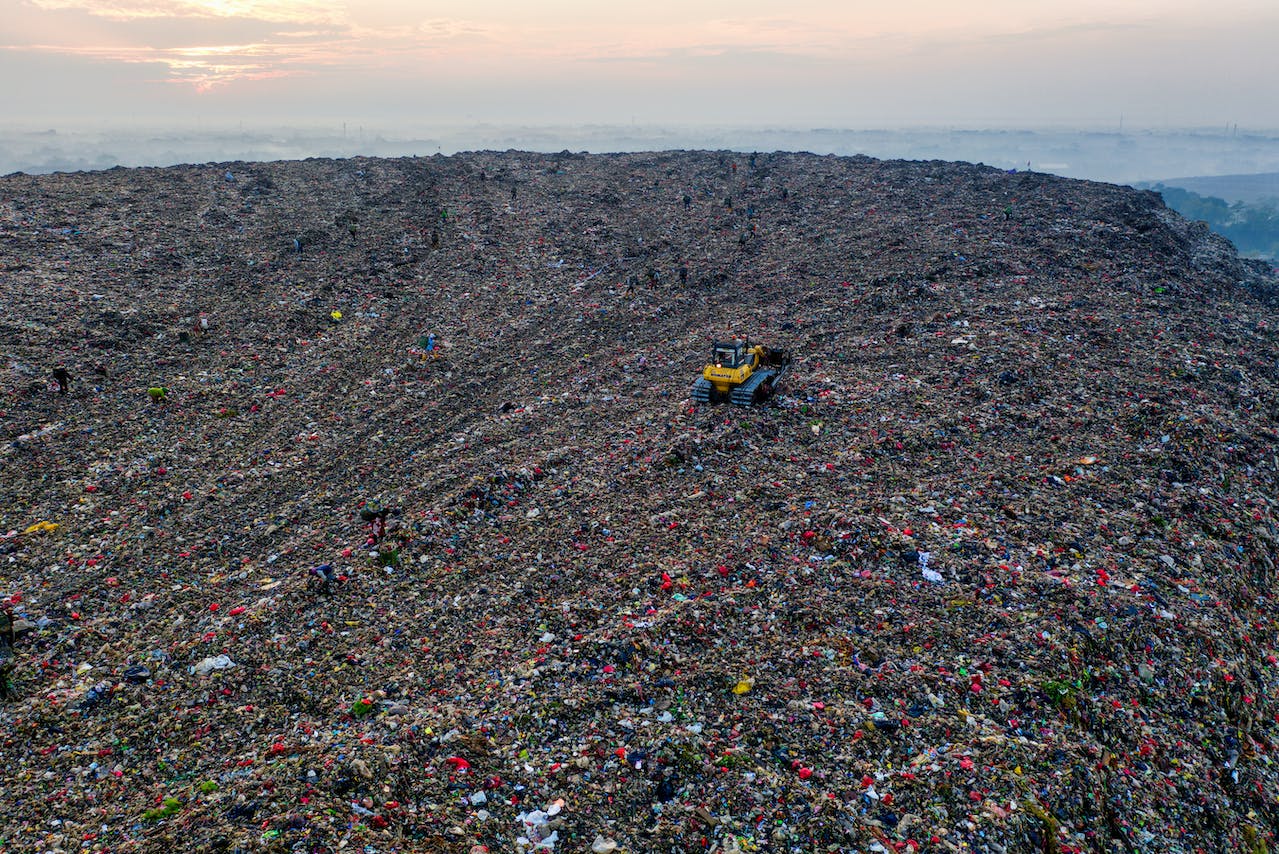Why Waste Management Matters
A Deep Dive into Environmental Benefits and Impacts
It’s time to talk trash. That’s right, we’re calling you out: are you disposing of your waste responsibly? Do you recycle? Are you aware of all the services available to make waste management more efficient?
Let’s be honest: a lot of our environmental concerns don’t come from the average American. It’s the major corporations running heavy machinery and producing monumental amounts of waste. However, the individual American can help improve the overall picture. First, we need to understand the problem; then, we need to discuss how we can improve. It’s time to delve into the nitty gritty of waste management.
The Mounting Challenge: How Much Trash Does the Average American Produce?
The average American produces around 4.4 pounds of waste per day— that’s staggering. Then you multiply that by the population of the United States… you can start to comprehend the magnitude of the waste management challenge we face. That seemingly harmless soda can or food wrapper adds up quickly, contributing to the over 250 million tons of municipal solid waste generated annually.
And don’t get us started on corporate waste! Companies across industries generate substantial amounts of waste through their operations, which can have negative environmental impacts if not managed properly. This waste can include various types such as packaging materials, office supplies, manufacturing byproducts, and even food waste in some cases.
In 2018, the total generation of municipal solid waste (MSW) in the US was estimated to be 292.4 million tons. Paper and paperboard products made up the largest percentage of all the materials in MSW, at 23.1 percent of total generation. Food waste comprised the fourth largest material category, estimated at 63.1 million tons or 21.6 percent of total generation in 2018. Yard trimmings comprised the next largest material category, estimated at 35.4 million tons, or 12.1 percent of total generation.
When waste is not managed properly, it can harm our environment and our health.
The Ripple Effect: Environmental and Social Impacts
Beyond the eyesore of overflowing landfills, the environmental toll of improper waste management is profound. Wildlife is affected by ingesting or becoming entangled in plastic debris, and ecosystems suffer from the contamination of soil and water. By adopting responsible waste management practices, we can mitigate these adverse effects and work towards a more sustainable coexistence with nature.
Plastic Waste Pollution – Tons Dumped Into the Ocean
Plastic waste alone has several negative effects on the environment. One of the biggest concerns is the harm it causes to wildlife. Millions of animals, including birds, fish, and marine organisms, are killed every year due to plastic pollution. Plastic pollution also has an impact on ecosystems. Plastic debris and microplastics have been found in various environmental niches, from mountains to the bottom of the sea. These plastics can leach harmful chemicals into the environment, leading to further ecological degradation.
Plastics Contaminate Our Food and the Environment
Plastics contain various chemical additives, such as bisphenol A (BPA) and phthalates, which have been linked to health concerns. These chemicals can leach out of plastic waste and contaminate food, water, and the environment. Exposure to BPA and phthalates has been associated with adverse effects on reproductive health, hormonal balance, immune function, and the development of certain diseases. Other consequences of plastic can also affect our food and water, especially microplastics, further jeopardizing human health.

The United States has over 3,000 active landfills and 10,000 closed landfills.
The Waste Management Industry is One of the Oldest in the World
Waste management isn’t just about the environment: it’s also about healthy communities. Proper waste disposal ensures the health and well-being of communities. From reducing the risk of diseases spread by unmanaged waste to creating cleaner and safer living spaces, responsible waste management contributes to the overall quality of life.
Eye-Opening Waste Management Facts
Now that we have a better grasp on the scope of the problem, let’s explore some eye-opening waste management facts that highlight the importance of addressing the issue head-on.
#1 Landfills are Growing at an Alarming Rate
While the number of active landfills in the United States has been steadily decreasing, the size of these landfills has been growing. The average landfill size is 600 acres. That’s 600 acres of destroyed natural habitats for wildlife and 600 acres of decomposing garbage poisoning our air. The volume of waste we are producing is not decreasing but rather is concentrated in larger, more harmful landfills. With how fast landfills are growing, we may run out of landfill space at the current rate.
Plastics Can Take Centuries to Decompose
Waste takes a long time to decompose— a plastic bottle can persist for up to 450 years. Metal isn’t much better; did you know some metals can take hundreds to thousands of years to decompose? The decomposition rates for other things vary; organic materials like food waste may break down faster, but the process still releases harmful substances into the soil and groundwater.
#2 Recycling Makes a Big Difference
Recycling is one of the most effective ways to mitigate the impact of waste on the environment. It not only reduces the amount of waste going to landfills but also conserves natural resources. For example, did you know that recycling one ton of paper saves around 17 trees, 7,000 gallons of water, and 380 gallons of oil? Imagine the global impact if every American household practiced recycling consistently!
Recycling Aids in Greenhouse Gas Reductions
Recycling both conserves natural resources and reduces the amount of waste sent to landfills. Unfortunately, despite its potential, the recycling rate in the United States hovers around 32%, leaving ample room for improvement. Creating a culture of recycling requires community engagement and awareness. Educating individuals about the importance of sorting recyclables, understanding what can and cannot be recycled, and supporting initiatives to increase recycling infrastructure are vital steps in maximizing the benefits of recycling.
Recycling can help cut greenhouse gas emissions and save a lot of energy. Local junk removal services are here to help, offering services like scrap metal pickup and recycling.
#3 Electronic Waste Poses a Growing Threat
As technology continues to rapidly evolve, waste management strategies are running into increased complications of electronic waste (also called e-waste for short). The amount of e-waste has been on the rise over the recent years with no signs of slowing. Consumers are discarding their gadgets rather than recycling their e-waste, and many of these devices contain dangerous substances like lead or lithium. Only a handful of electronic waste is being properly disposed of or recycled, leading to more harmful chemicals being released during slow decomposition. While electronic waste represents only 2% of the debris dumped in American landfills, it equals around 70% of toxic waste.
Toxic Waste Leaking Into Soil and Local Water Sources
Unfortunately, when electronics end up in landfills, it puts the environment at risk. In addition to taking hundreds of years to break down, electronics leak toxic chemicals like lead and mercury into the soil.
Batteries, phones, and smaller e-waste can be brought in to most electronic retailers for easy recycling. Several electronic stores offer specialized recycling services for used TVs, appliances, devices, cords, and more. For larger items that are harder to haul, like washers and dryers, Victory Junk Removal offers appliance removal and recycling as well as proper e-waste management.
We Handle Many Property Cleanouts:
Basement Cleanout
Estate Cleanout
Foreclosure Cleanout
House Cleanout
Garage Cleanout
Hoarding Cleanout
Renovation Cleanout
Storage Unit Cleanout
Better Prices, Better Service, Better Junk Removal
The Way Forward: Sustainable Waste Management
Waste management is the process of handling, controlling, and disposing of waste materials responsibly and efficiently. Effective waste management not only prevents pollution but also conserves natural resources and reduces greenhouse gases.
Recycling Goes a Long Way
One of the most critical steps towards improving waste management practices is raising awareness about recycling and its benefits. Education and awareness programs targeting both children and adults can play a crucial role in transforming our waste culture. By understanding the importance of recycling and how to do it correctly, individuals can become active participants in reducing waste and conserving resources.
Recycling is helpful, but it’s not the only initiative or solution available to improve waste management. Let’s take a look at more.
Advancements in Waste Sorting
Advancements in technology have given rise to innovative waste sorting and processing techniques. Automated systems can separate recyclable materials from the rest of the waste, enabling more efficient and eco-friendly recycling processes. Additionally, the development of bioenergy facilities allows the conversion of organic waste into renewable energy, further reducing the amount of waste sent to landfills.
Proper Municipal Solid Waste Management
The US spends around $200 billion a year on solid waste management. Municipal solid waste management (MSWM) refers to the systematic collection, transportation, processing, recycling, and disposal of waste generated by households, commercial establishments, and institutions within a municipality.
Effective MSWM is essential for improving the state of our environment and communities. Efficient waste collection systems ensure that waste is properly gathered; this can include curbside collection, drop-off locations, or a combination. Community members and businesses need to take care that recyclables are properly sorted out; once the waste reaches the management company, it’s up to them to recover materials, convert organic waste into compost or biogas, and properly treat and dispose of the remaining waste.

Around 60% of plastic waste is not recycled and encounters the environment

Get your free quote today!
Residential Junk
-
Garbage Removal
-
Mattress Disposal
-
Construction Waste and Debris Removal
-
Appliance Removal
-
Foreclosure Clean Outs
-
Exercise Equipment
-
Unwanted Household Items
-
Shed Removal
-
Furniture Removal
Commercial Junk
-
Electronic Waste Disposal
-
Office Furniture
-
Computer & Notebook Disposal
-
Printer, Scanners & Copier Disposal
-
Monitor & Display Removal
How Our Service Works
- Schedule your junk removal service with a call or text at 732-439-4468 for a free estimate. You could also email us at info@victoryjunkremoval.com or fill out the online form here.
- Our friendly, uniformed crew will call you 15-30 minutes before your scheduled 2 hour arrival window. This way, you will know exactly when to expect us.
- When we arrive, we’ll go over all items and junk you need us to remove and haul away.
- Our professional junk removal crew will collect trash, appliances, furniture, and all other unwanted junk from anywhere on your property.
- Once we’re done, we will sweep the area clean, and then haul your junk away to be reused, recycled or otherwise disposed of responsibly.
Want to Learn More About How Our Junk Removal Service Works?
Junk Removal Services
Waste management companies like Victory Junk Removal handle more than just your basic home junk removal, such as washers and driers, and hot tubs. You can get help during difficult times, such as with estate cleanout services, carpet removal, or hoarding cleanout services. Many offer a variety of recycling and disposal services, and while they may not be able to handle toxic waste, they can point you in the right direction.
Getting the Government Involved
Addressing waste management requires collaboration between industries and governments. Implementing effective waste management policies, regulations, and incentives can create a conducive environment for sustainable practices. Furthermore, businesses can play a pivotal role by adopting responsible waste management strategies, such as reducing packaging waste and promoting circular economy principles.
Remember, the power to make a difference lies in our hands. Let’s educate ourselves, raise awareness, and take action today for a better tomorrow.